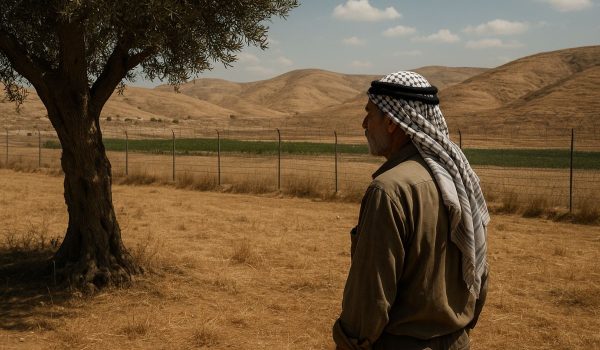Land is more than just soil. It holds history, culture, and connection. For many Palestinian communities, land represents identity, survival, and the promise of a future. But when access to land is denied, restricted, or taken, the impact spreads far beyond property lines. It shapes daily life, economic opportunity, and the health of the environment.
Environmental justice and land rights are closely connected. They intersect where people’s ability to live sustainably is disrupted by policies or practices that favor one group over another. When land is seized or degraded, it not only displaces communities—it often harms the ecosystems that sustain them. In Palestine, these issues are deeply felt and widely documented.
A Closer Look at What This Article Covers
This piece explores how land rights and environmental justice intersect in Palestinian life:
- How land loss affects both people and ecosystems
- The environmental impact of occupation and settlement expansion
- The role of community-based efforts in protecting land and nature
- Stories of resilience where land and identity are linked
- Why environmental justice cannot be separated from human rights
This conversation is not just about policy. It’s about people, families, and the spaces they depend on to live, grow, and breathe.
Land as a Lifeline
For Palestinian farmers, shepherds, and small communities, land is not just where they live—it’s how they live. It holds orchards, grazing areas, olive groves, and rainwater collection sites. These are resources built up over generations. When access is denied or disrupted, the ability to feed families or sustain a livelihood is at risk.
Many villages depend on agriculture not only for income, but for self-reliance. Losing land often means losing that independence. In some places, land confiscation forces people to rely on expensive imports or temporary jobs far from home.
Even when land isn’t taken directly, movement restrictions can limit access. Roads blocked by checkpoints, fences, or permits make farming difficult and time-consuming. The result is land that goes unused, crops that wither, and soil that loses its strength.
Environmental Damage from Land Displacement
The ecological cost of land restrictions and development is often ignored. When forests are cleared to make room for new infrastructure, native species disappear. When settlements expand without planning, waste and water systems get overloaded. When farmlands are abandoned or bulldozed, erosion and desertification become real threats.
In many areas, Palestinian villages are located near waste sites or quarries used by nearby settlements. These sites often leak pollutants into the air, soil, and water. Without proper regulation or community input, the health of both people and ecosystems suffers.
Water access is another major concern. Some communities rely on rainwater collection because they are not connected to reliable water networks. But when access to these systems is blocked, residents are forced to buy expensive water or depend on limited supplies. This strain affects hygiene, agriculture, and overall public health.
Community Resistance Rooted in Stewardship
Despite these challenges, many Palestinian communities continue to care for their land. They plant trees, clean up waste, rebuild terraces, and pass down farming skills to younger generations. These actions are not only practical—they are deeply symbolic.
Programs led by local organizations often bring volunteers together to support planting drives or environmental clean-up efforts. These projects help reclaim neglected areas and send a message of resilience.
In some cases, international partners have joined these efforts. They offer technical advice, funding, or legal support for defending land rights. This cooperation adds momentum and visibility, but the work is always rooted in local knowledge and lived experience.
Environmental Justice and Legal Frameworks
Environmental justice means everyone has the right to a healthy environment. That includes clean air, safe water, and access to nature. It also means communities should have a voice in decisions that affect their surroundings.
In Palestine, these rights are often shaped by complex legal and administrative systems. Land designations, zoning laws, and permit systems play a big role in who can build, plant, or repair infrastructure. These policies are not always applied evenly, which creates gaps in environmental protection.
Some groups are working to challenge these policies in court. Others are documenting the impact of environmental harm through photography, data collection, or storytelling. By showing how land loss and pollution affect daily life, they build a stronger case for justice.
Land Defense as an Act of Care
Caring for land is not just an environmental act—it’s also cultural. Many Palestinians see stewardship of the land as a form of responsibility. Harvest festivals, seasonal planting, and oral histories tie communities to the soil in deep and lasting ways.
That connection can be a source of strength. It helps communities push back against policies that aim to erase or restrict them. It also gives young people a way to connect with heritage while building practical skills for sustainability.
Education plays a role here too. Programs that teach children about composting, irrigation, or native plants connect them to both land and community. These small lessons carry forward as habits and values.
Building a Future with Rights and Balance
Environmental justice for Palestinians is about more than fixing broken systems. It’s about building new systems that treat land and people with respect. That means fair access to resources, clear protections for nature, and policies that put community health first.
It also means listening to those who live closest to the land. Their stories, knowledge, and efforts are key to shaping policies that work. From rain-fed farming to water-saving techniques, the solutions already exist in the hands of those often excluded from the conversation.
Land rights and environmental justice are deeply linked. One cannot move forward without the other. They remind us that caring for people must include caring for the places they call home.

